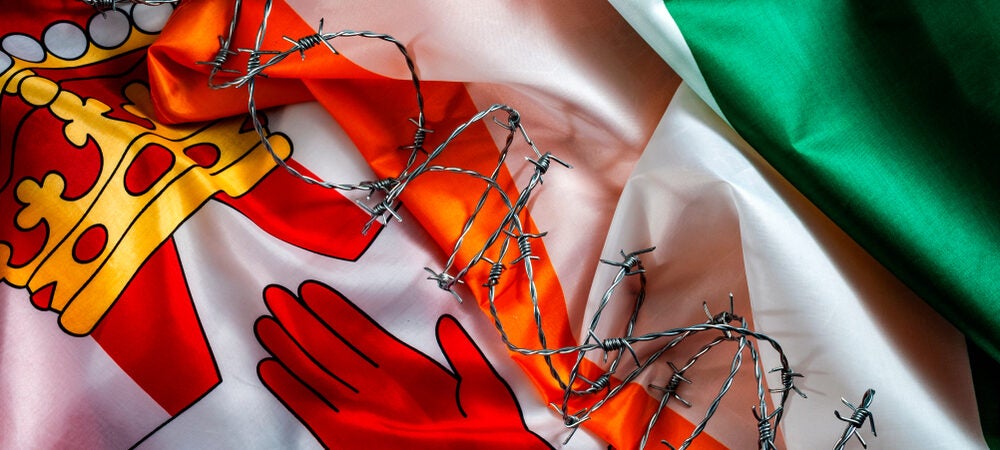The Protocol on Ireland/Northern Ireland (the Protocol) was included in the Withdrawal Agreement between the UK and the EU with the stated objective of protecting peace in Northern Ireland (NI), and in particular the operation of the Belfast (‘Good Friday’) Agreement (GFA). It aimed to avoid customs and regulatory checks or controls and related physical infrastructure at the border between Ireland and NI, while also protecting the EU single market. At the same time, the parties intended to minimise the impact of the Protocol on everyday life in Ireland and NI, and to have regard to the importance of maintaining the integral place of NI in the United Kingdom’s internal market.
In practice, it has caused economic disruption and political instability. The NI Court of Appeal found that its implementation in law has suspended the parts of the Act of Union that promise equality in trade between Great Britain and Northern Ireland . Early in 2022 the Democratic Unionist Party withdrew from the devolved government in NI, and implementation of the protocol by local agencies and officials has been beset with legal and political challenges . This has destabilised the institutions of the GFA that the Protocol was designed to protect.
The macroeconomic effects of the Protocol have been difficult to separate from the effects of Brexit generally and the Covid pandemic. It is clear that the costs of dealing with the new trade barriers run into hundreds of millions of pounds and there are many reports of products becoming unavailable or more expensive, with little evidence so far that the benefits from continued participation in the single market outweigh such costs.
Since the Protocol was agreed, the UK and the EU have been working to implement it and manage its impacts, both through a dedicated joint committee and through unilateral measures.
The UK published proposals in July 2021 for what it considers to be a durable solution. This involved amending the Protocol in a way that the UK believes would avoid border controls between NI and Ireland, while protecting the single market and also respecting the constitutional integrity of the UK and the economic interests of NI. The EU responded in October 2021, with a much more limited and heavily conditioned set of proposed mitigations.
This briefing paper summarises the provisions and effects so far of the Protocol, then considers each side’s proposals to improve it. Finally, it suggests how the British government could proceed.
Northern-Ireland-Protocol-Current-Position-and-ways-forwardTo read the full report by the Institute of Economic Affairs, please click here.
Victoria Hewson | Institute of Economic Affairs

